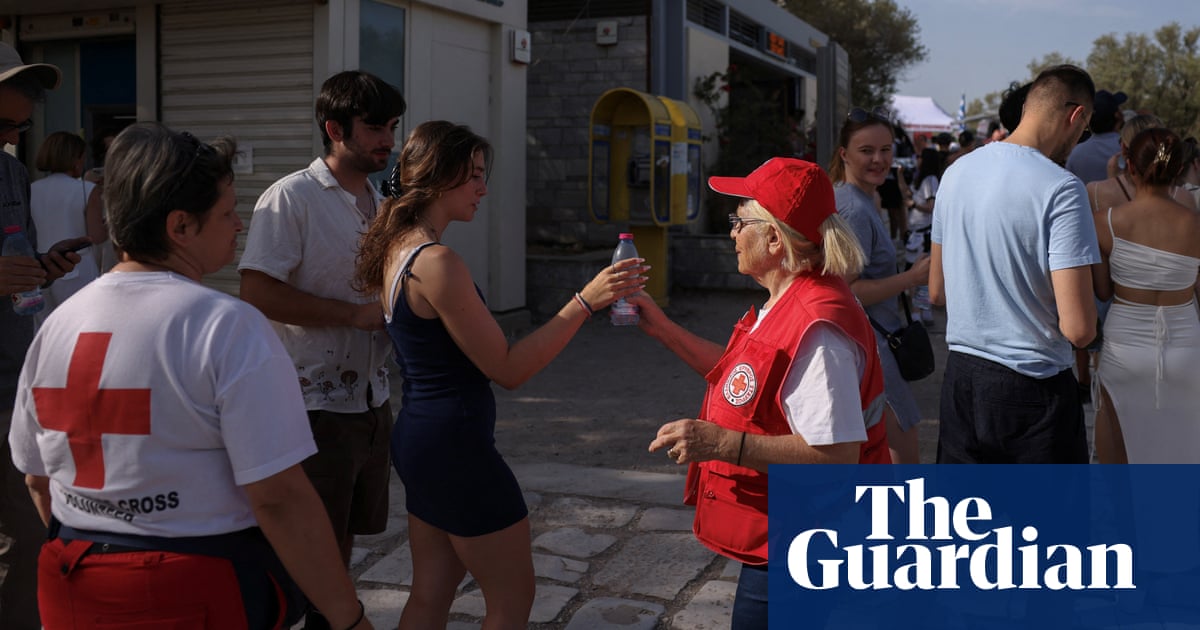With Greece gripped by unusually high temperatures, fears are growing that foreign visitors are not aware or being properly informed of the risks posed by overexertion in the searing heat.
Over the past week, three search and rescue operations have been started for tourists who have gone missing during treks on far-flung islands, including one for the popular TV presenter Michael Mosley, who was found dead on the island of Symi.
Mosley had set out in blistering temperatures on what his wife, Dr Clare Bailey, described as an “incredible climb” through rugged hills after taking a wrong route. Despite a massive search involving patrol boats, divers, helicopters, firefighters, police, drones and a specially trained sniffer dog, it took five days before the body of the 67-year-old was discovered, because he had collapsed in an area where he could not easily be seen. The record heat is believed to have played a key role in Mosley’s death.
In recent days, emergency services have also been called out to two other far-flung islands, Samos and Amorgos, to look for an elderly Dutch man and a US national who disappeared on hiking trails.
Eric Calibet, 59, a retired Los Angeles police officer and regular visitor to Amorgos, was last seen on Tuesday making a solo trek across the Cycladic isle. He had set out at 7am to hike for four hours, on a day when temperatures were slated to exceed 37C. By late Thursday, nearly 48 hours after the friend he was staying with alerted police about his failure to return, Calibet was still missing. His last known contact is believed to be a message he sent from his mobile phone to his sister.
A search operation on Samos involving a rescue team, four drones, a sniffer dog brought in from Athens and a Frontex EU border agency helicopter, have also failed to find the 74-year-old Dutch national, who had similarly embarked on a five-hour hike when he vanished.
Dimitris Katatzis, who heads the Samos rescue team, said missions were often made more difficult because tourists, frequently unaware of the risks, “veered off track” to see sites and then got lost. “Yesterday we saw a couple [of foreigners] walking a trail in 41C without hats,” he told local media. “It defies logic.”
A Mediterranean hotspot on the frontline of the climate emergency, Greece has experienced increasingly hot temperatures, with a record 48C logged last summer.
This year, in what the national meteorological service, EMY, described as a first, record-high temperatures are already being registered at this stage of the season. Schools have shut and the culture ministry was forced to close the Acropolis and other archaeological sites to visitors. Red Cross volunteers have handed out thousands of free bottles of water and Athens town hall has set up cooling stations. In Chania, on Crete, the mercury hit 44.5C on Thursday.
The extreme heat and the dangers it poses have spurred demands for better upkeep and signage of trails.
“I’d like to see more CCTV cameras and the lighting of these trails,” said Symi’s mayor, Eleftherios Papakalodoukas . “If there is a lesson to be learned from the tragedy [of Mosley’s death], it is that these paths need to be better looked after so that people don’t get lost.” Mosley was without a mobile phone when he set out on his walk.
Local officials also called for tourists to be better informed, with one town hall councillor on the island of Chios saying walking clubs in remote areas that had the knowhow and ability to improve paths should be better supported financially and technologically to ensure that trails were less perilous.

